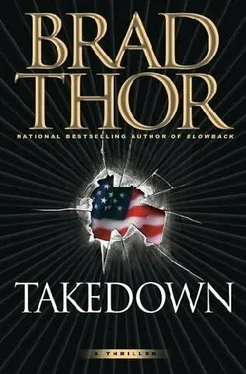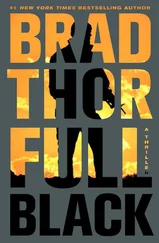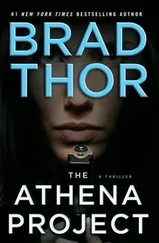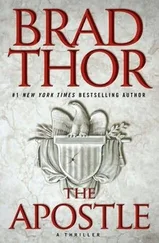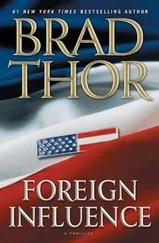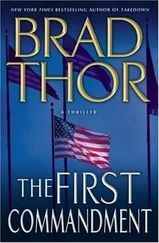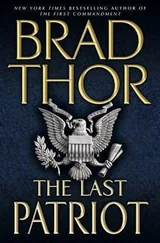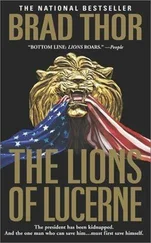While it might be very odd for the lead terrorist’s pager to be getting updates, it might just be odd enough to pique his interest and cause him to look into why the failed bomber was apparently trying to reconnect.
“And if the lead man tries to call or message our guy’s cell phone?” asked Herrington.
“It doesn’t matter. No cell phones except for first responders and law enforcement are working now anyway. Kevin’s pal at Nextel says he’ll make sure all anyone gets when they dial the number is a fast busy signal and any text messages will fail to go through. All we have to do is keep the updates coming sporadically enough to keep their interest,” said Harvath.
It sounded like a reasonable enough plan, though it potentially had two fatal flaws. The team was divided over whether or not the terrorists would have had a contingency plan-a what to do if you can’t hit your target or your bomb fails to go off. If they did and one of the bombers diverged from that contingency plan-like returning to a predetermined location and contacting an outside player-it might set off alarm bells and instead of drawing the remaining terrorists in, actually push them away. The second potential pitfall was whether or not the suicide bombers would have been privy to the rest of the operation. It was another sticking point that could just as easily work against them as it could in their favor.
There was a third problem that they all agreed on-they had no idea who or what they were going to be looking for. They could set up the world’s best ambush, but if they couldn’t identify their quarry, how would they know when it was time to spring the trap? In the end, they decided they would just have to jump off that bridge when they came to it.
The south end of Central Park fit the ambush bill better than anything else they could think of. It provided ample cover and concealment and multiple vantage points, and with all of the mayhem across the city, the people who had decided to congregate there away from tall buildings or other potential terrorist targets were by and large in the open expanse of the Sheep Meadow. That was a big plus, as the last thing they wanted was unnecessary collateral damage or a ready supply of potential hostages if the ambush went sideways, which at this point none of them were prepared to rule out.
Their goal was to draw the terrorists into the narrow area just north of the underpass that ran beneath the 65th Street Transverse known as the Denesmouth Arch. From there, Bullet Bob, the team’s most skilled long-gun shooter, would have an unobstructed field of fire from both directions. Though he couldn’t argue with Harvath’s rationale, Herrington would have much rather preferred being with the rest of the team. The idea of not being in on the actual ambush didn’t sit well with him at all.
With the light fading, Harvath took Tracy Hastings aside and handed her the night-vision device from his bug-out bag.
“So you’ve got no problem giving the girl with one eye a monocular?”
“Do I look like I have a problem with it?” he replied as he pulled a pair of Motorolas out of the pack.
“Then how come every time I turn around, you’re staring at my face?”
Without even thinking about it, Harvath looked away from her. “You remind me of somebody, that’s all.”
“I’ll bet I do,” she replied, not taking him seriously.
“Listen, being an EOD tech, you’ve been trained to pay attention to the smallest details, and that’s what we need right now. As long as you pull your weight, I don’t give a damn that you’re a woman. And as far as having only one eye, I don’t care about that either. You got a night-vision monocular because that’s all I have with me.”
Hastings was surprised by his honesty. “That’s it?”
“That’s it,” replied Harvath as he turned and walked away to assign Cates and Morgan their positions.
Abdul Ali was beyond angry. Either Hussein Nassir had lost his nerve or his bomb had failed to detonate. Regardless, the Jordanian peasant would undoubtedly choose the latter as his excuse. The man’s involvement had been a mistake, Ali could see that now, but a beggar could seldom choose from whom he received his alms. The operation had necessitated the activation of almost every sleeper al-Qaeda had within the United States and even then additional men had to be smuggled in from both Canada and Mexico.
Martyring oneself, at least in an operation of this nature, did not call for a superior intellect, not even superior courage, but rather a blinding faith that one’s reward would be delivered in paradise.
That said, Nassir was a fool who was putting the rest of the operation in jeopardy by trying to track the team down. How he knew where they were was beyond Ali. All he knew was that keeping the details of an operation of this size quiet was very difficult. Someone must have told Nassir more than he needed to know. The positioning messages didn’t lie. The man had gone to both the Transcon office and the Geneva Diamond Exchange, and now for some reason had situated himself in Central Park. The idiot was going to get himself captured and would compromise everything. Ali had no choice but to go after Nassir and secure him until the rest of their work was done. Then he would find out how he had learned about the rest of the operation.
Though it was going to have a significant and detrimental impact upon their schedule, Ali instructed Sacha to turn around and head for Central Park. He just hoped he could get there before Nassir made any more stupid mistakes and gave them all away.
When Gary Lawlor fed the names Harvath had collected at the two crush depth locations into the shared intelligence database, he once again came up empty-handed. They were ghosts, every one of them-figuratively and, unfortunately now, literally. But while sterilizing civilian backgrounds was one thing, Gary had a feeling that erasing a marine’s life might be a little bit different-especially if his only role had been to provide security.
Picking up the phone, he dialed the number for USMC Lieutenant Colonel Sean Olson. The ropy, five-foot-six Olson was a graduate of the FBI’s law enforcement leadership program known as the National Academy. Conducted on the Bureau’s Quantico, Virginia, campus, the program included courses in law, behavioral science, forensic science, leadership development, communication, and health and fitness. Its expressed mission was “to promote the personal and professional development of law enforcement leaders,” but many argued that the most valuable thing that was formed at the National Academy were the incredible relationships and vast network of contacts among its graduates.
Lieutenant Colonel Olson was head of the Law Enforcement Security amp; Corrections Branch for the entire Marine Corps. If anyone could get Lawlor the information he needed on the mystery marines, it was his fellow National Academy graduate, Sean Olson.
“I’m neck-deep in shit right now, Gary,” said the lieutenant colonel when his assistant put the call through, “so I’m going to save us both a lot of time. What do you need?”
Lawlor appreciated his colleague getting right to the point and he returned the favor. “Sean, we’ve got reason to believe that the bridges and tunnels in New York weren’t the only targets.”
“Jesus Christ,” replied Olson as his attitude shifted from impatience to genuine concern. “You think there’s going to be more?”
“We believe there already have been.”
The man was shocked. “Where? How come we haven’t heard of it here?”
If by here Olson meant the Marine Corps Security Division, it was easily explainable, but if by here he really meant the Pentagon, then Lawlor wasn’t so sure the deep crush attacks hadn’t been heard about. “This is a very delicate situation. The attacks I’m referring to were not civilian targets.”
Читать дальше
